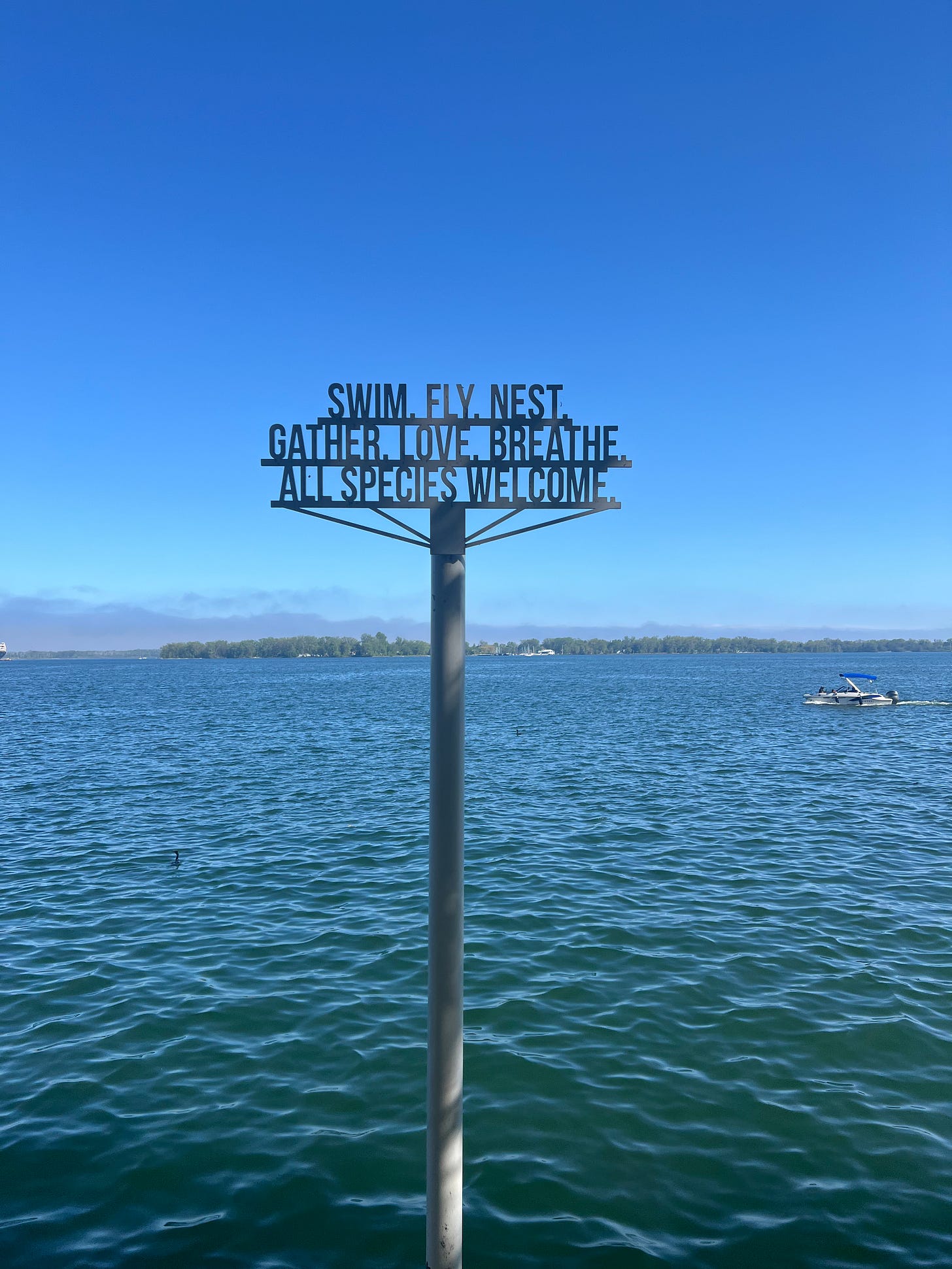Hi readers! I have recently been thinking about the nature of creativity — how it is commonplace yet rare, omnipresent yet elusive. Creativity is expressed in a hundred different ways in a hundred different people. And yet!
I recently noticed a pattern in how it can be nurtured. In his book “Answers from the Heart,” the great Zen Master Thich Nhat Hanh (known as Thay) explained the process behind his writing:
“One day in New York City I met a Buddhist scholar and I told her about my practice of mindfulness in the vegetable garden. I enjoy growing lettuce, tomatoes, and other vegetables and I like to spend time gardening every day. She said, 'You shouldn't spend your time growing vegetables. You should spend more time writing poems. Your poems are so beautiful. Everyone can grow lettuce, but not everyone can write poems like you do.' I told her, 'If I don't grow lettuce, I can't write poems.”
For Thay, gardening was an important part of his creative life. Even though gardening can seem only a physical activity, its benefits transcend beyond the physical. Thay explains:
“It's very helpful to stop the thinking. Your art is conceived in the depths of your consciousness while you're not thinking about it. The moment when you express it is only a moment of birth, the moment you deliver the baby. For me, there must be moments when you allow the child inside you to grow, so you can do your best and your masterpiece can contain insight, understanding, and compassion.”
I need only read a few sentences written by Thay to get a glimpse of how much of a spiritual giant he was and still is (even though he has shed his physical body).
Reading Thay’s creative process also reminded me of another writer: Haruki Murakami.
For Murakami, his non-writing creative outlet is running. In his book “What I Talk About When I Talk About Running,” Murakami writes that running is both exercise and a metaphor. “When I'm running I don't have to talk to anybody and don't have to listen to anybody. This is a part of my day I can't do without.”
It seems that having a simultaneous creative outlet – one that allows you to be fully alive to your own company – makes for a fertile ground for creativity or productive thought.
Perhaps this is what Albert Einstein was referring to in his letter to French mathematician Jacques Hadamard (published in Ideas and Opinions). Einstein wrote: “Combinatory play seems to be the essential feature in productive thought.”
Most people know Einstein as The Great Scientist, but lesser known is his talent as a musician. Speaking of his father, Einstein’s son said: “[w]henever he felt that he had come to the end of the road or into a difficult situation in his work, he would take refuge in music, and that would usually resolve all his difficulties.”
Who knows how creativity works? It is mysterious, elusive and endlessly enchanting!
I am always trying to understand more about it and always trying to nurture it in myself. If you have further insights on this topic, I’d love to hear from you!
Thank you for reading! I am so glad you are here!
Note: References for the above quotes are listed at the very end of this post.
PS: Last year, I read “The Novelist as a Vocation” by Murakami, and his remembrance of how he decided to start writing while attending a Tokyo baseball game was surprising and delightful. Murakami wrote:
“The sky was a sparkling blue, the draft beer as cold as cold could be, and the ball strikingly white against the green field. … In that instant, and based on no grounds whatsoever, it suddenly struck me: I think I can write a novel.”
In the years prior, Murakami made his living running a jazz bar, and it felt like his novel was brewing inside him all that time..
PPS: I find that taking a walk by the lake is conducive for creative thought. Here is what I saw at Lake Ontario a while ago:
References:
Hanh, T. N. (2009). Answers from the Heart: Practical Responses to Life's Burning Questions. Parallax Press.
Murakami, H. (2009). What I talk about when I talk about running: A memoir. Vintage.
Einstein, A., Seelig, C., Bargmann, S., Unna, I., & Wolff, B. (1954). Ideas and opinions (p. 384). New York: Wings Books.
Clark, R. W. (1971). Einstein. The Life and Times. New York: Crowell.
Murakami, H. (2022). Novelist as a Vocation. Bond Street Books.




